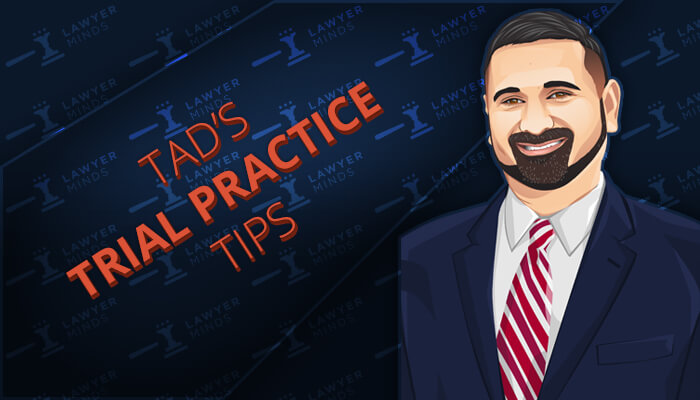How to Use Social Media to Research Jurors

Join me as I talk tips for upping your trial performance. I’ll cover all aspects of the trial, including jury selection, opening statements, direct witness testimony, cross-examination, closing arguments, jury instructions, and verdicts. Discussions are welcome in the comments section.
— Tad Thomas
With the popularity of social media platforms like Facebook, Twitter, and Instagram, you can learn a lot about potential jurors from their online profiles. Comments, tweets, and likes have the potential to be relevant to the case you’re trying.
Online information about prospective jurors can give trial attorneys a better idea of who the jurors really are, especially when considering how impersonal and infrequent face-to-face interactions are in the courtroom.
Keep reading to learn how best to utilize social media research to learn about jurors.
What Social Media Tells Us About Potential Jurors
Per ABA Formal Opinion 466, “Unless limited by law or court order, a lawyer may review a juror’s or potential juror’s Internet presence, which may include postings by the juror or potential juror in advance of and during a trial, but a lawyer may not communicate directly or through another with a juror or potential juror.”
So, while, in most instances, you are allowed to look up jurors’ social media profiles, direct communication is off-limits. In addition to that, Formal Opinion 466 also prohibits lawyers from sending a request to jurors to access their profile. Acceptable information is what’s available to the general public. So, if a person has all their privacy settings on, that profile isn’t going to help you.
When you can access potential jurors’ profiles, you may be able to gather intel on biases. For many people, the internet is a place to share their every thought openly. If you carefully and thoughtfully gather data on their viewpoints, you’ll increase your chances of seating a jury that is ready to listen to your argument.
How to Make the Most of Social Media Research
Before you can start browsing social media to learn about prospective jurors, it’s important to have full juror profiles created for both the plaintiff and the defense. Have a list of demographics and personal characteristics that could affect whether a person is likely to lean toward the plaintiff or the defendant.
When you start your search online, consider creating a summary sheet for each prospective juror. You only want to consider information that could be useful for jury selection. You can start with a simple Google search before diving into individual social media platforms. You never know what Google will have to offer.
While you can learn a lot from social media research, it’s imperative to remember boundaries. Per the ethical rules governing attorneys, you can’t communicate with prospective jurors and members of the sitting jury. So avoid sending prospective jurors messages and conduct searches anonymously. On LinkedIn, for example, set your searching profile to private so prospective jurors never know that their information has been looked at.
Researching Jurors Beyond Social Media
While social media profiles are likely to give you personal information about jurors, searches on public websites can give you even more information.
You can use a public website to find information about jurors’ family members, political party registration, and campaign contributions. You may also be able to find pictures of jurors’ homes and property valuations.
Information from public websites can be supplemented with online subscription databases that house information about bankruptcies, liens, civil cases, criminal history, professional licenses, and more.
To learn as much as you can about prospective jurors, you need to pursue all outlets—including social media. In the past, you might have purchased lists on jurors’ voter registration, property values, and litigation history. Today, you can learn a lot of that information and so much more, just with a quick Google search. The more you know about your jurors, the better you will advocate for your client.


